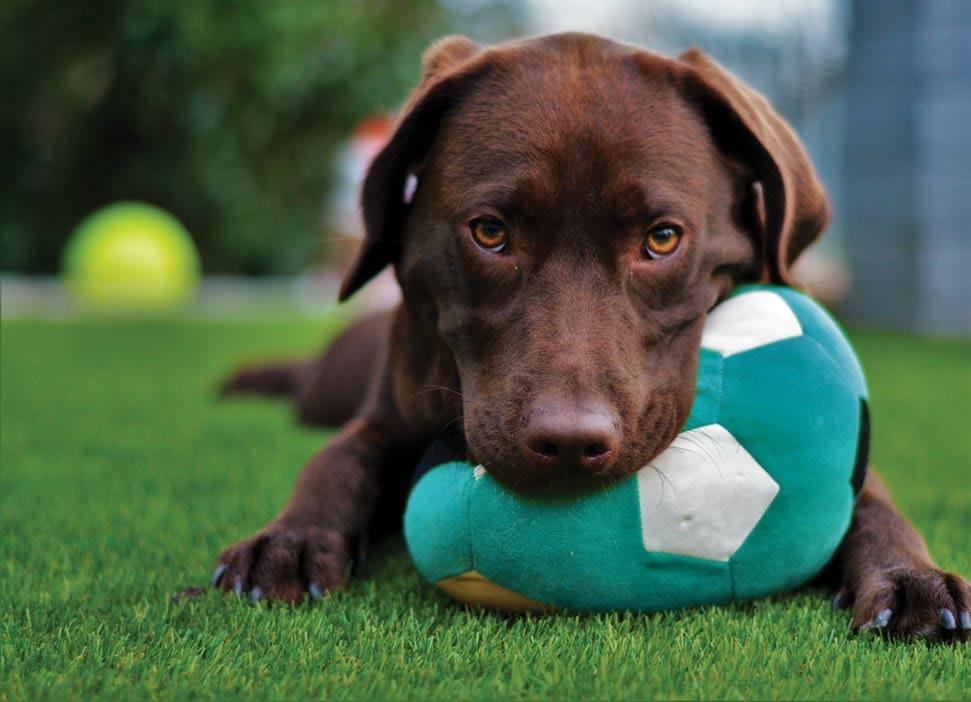
2 minute read
RESCUE EVENTS & DOGGY DOINGS
from THE WAG magazine
Looking to find your fur-ever pal? Or, maybe just nosing around for something fun to do?

Advertisement



Check out these Rescue Events and Doggy Doings. From adoption events to agility—dock diving to even channeling your inner artist—there’s always something going on for dogs and dog lovers. If you have an event you would like us to include in an upcoming issue, just send a note to penny@thewagmagazine.com with “EVENT” in the subject line and provide the basic details as you see below. While we would love to publish all dog-related events, due to limited space, priority will be given to events involving rescue, adoption, and fundraising.
Gabriel’s Angels “Unleash the Love” additional strain on your dog’s joints, often worsening symptoms. As a result, many veterinarians will emphasize the importance of weight loss if your dog is overweight and struggling with arthritis to help minimize your dog’s pain and symptoms.
If this hasn’t convinced you, consider that studies have shown that overweight dogs that lost just 6 percent of their weight saw a noticeable improvement in mobility, according to the American Kennel Club. For an 80-pound Golden Retriever, this would mean losing 4.8 pounds or a 10-pound Chihuahua losing 0.6 pounds to start seeing improvements in mobility.
Regular, low-impact exercise is another standard recommendation for dogs with arthritis, because it helps them stay moving, maintain a healthy weight, and has many other great health benefits. Depending on your dog’s case, your veterinarian may also recommend physical therapy to help improve joint motion and relieve pain.

Consider purchasing a dog ramp or stairs so your buddy can continue hanging out in all their favorite places. An extra comfortable dog bed designed for arthritic joints can also provide relief and comfort.
Predisposition
All dog breeds can develop arthritis. However, larger, heavier dog breeds, like Great Danes, Golden Retrievers, German Shepherds, and Rottweilers, are at an increased risk because large-breed puppies grow so quickly that this can put additional strain on their joints from a young age. Small dog breeds prone to spinal and joint problems due to their build, such as Dachshunds, are also at an increased risk.
Other contributing factors
Besides genetics, age is one of the biggest contributors to dogs developing this debilitating disease. This development results from the cartilage between the bones naturally wearing down as your dog ages, leading to the bones rubbing against each other.
Injuries that cause torn cartilage or damage to the joints may also lead to an otherwise healthy dog developing arthritis. These injuries often occur in young puppies who are exercised too much or too strenuously before their bodies have a chance to develop. Even older, athletic dogs can injure themselves if they are not adequately warmed up before strenuous exercise.
The winter effect
Cold temperatures cause air pressure to drop, leading to tissue swelling. When a dog’s tissue swells, its mobility is inhibited, and arthritis-related pain often increases. The muscles around the joints may also stiffen, causing more tension and discomfort.
Despite the cold weather, it’s important to continue taking your dog out for walks to keep them mobile. If you have a dog with a shorter coat, put a dog jacket or sweater on them so they keep warm. Multiple, shorter walks may be a better option when the weather is cold. Take care to walk only on cleared paths, as slippery snow and ice are especially tough on the joints.










